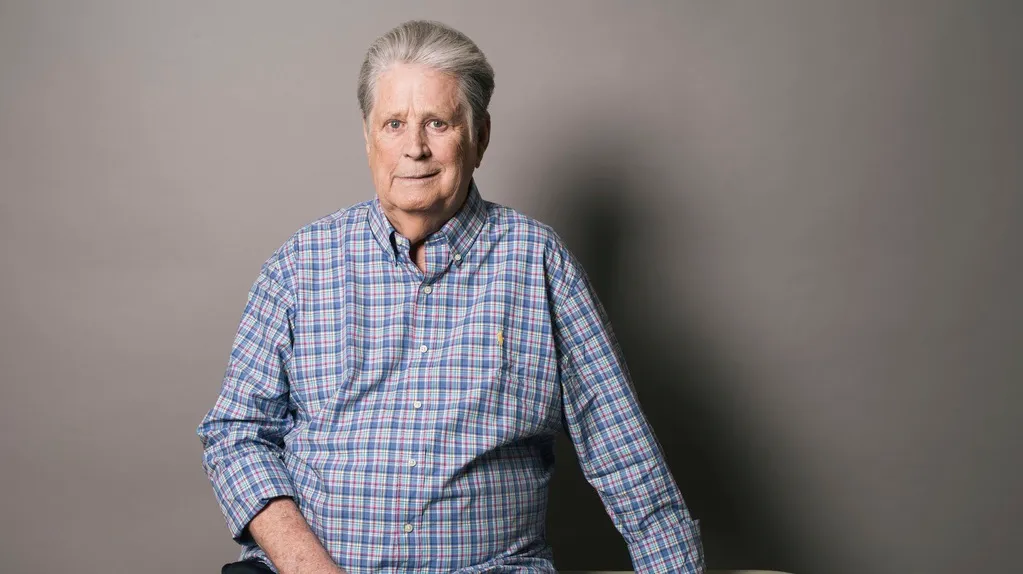May 4, 2024
Review: Bold, Audacious 'I Saw the TV Glow' Explores Fandom, Identity and the Way We Remember
Jocelyn Noveck READ TIME: 4 MIN.
The school gym. The football field bleachers. The multiplex, the fast food drive-thru, the quiet leaf-covered street where your friend lives.
Something about the detail and clarity with which Jane Schoenbrun evokes '90s suburbia in "I Saw the TV Glow" makes you remember growing up there – even if you didn't.
But that's the thing about memory, isn't it? It can be distorting.
And that's what Schoenbrun, an exciting filmmaker on only their second project, is driving home in this tale centered on those angsty school years when you're trying to fit in, or merely realizing you don't – particularly, and more intensely, if you are queer or trans and don't quite know it yet.
Schoenbrun has spoken about their own suburban youth in the '90s, feeling different but not fully understanding why until years later when they began their own transition. The backstory of Schoenbrun's own experience is not essential to appreciating their movie, but certainly adds poignancy to some scenes – especially one in which the main character, Owen (Justice Smith, superb), describes the confusion he's been feeling about himself. Something is wrong with him, he knows, even though his parents won't say it. He feels like someone has dug out his insides.
Similarly, one need not be an aficionado of '90s cable TV – particularly "Buffy the Vampire Slayer," which Schoenbrun grew up loving – to understand the huge role that fandom plays in the emotional life of Owen and his new friend, Maddy (Brigette Lundy-Paine). If you were a big fan of any show that aired before the streaming era, you'll understand instinctively how that intense connection can lead to distorted memories: Watch it today, and what felt scary is now silly. What seemed like art is a cheesy mess.
But we remember what we remember for a reason, Schoenbrun is saying, in a film that succeeds most clearly on an emotional level, if the plot eventually feels a bit muddled. (But is that purposeful, another meditation on the selectiveness of memory, or a reflection of the jumbled way we think in youth? Yes, in all likelihood.)
We first meet middle-school aged Owen (a wonderfully empathetic Ian Foreman plays this younger version) on Election Day 1996. Owen's mom (Danielle Deadwyler) takes him into the voting booth at the high school. But Owen's interested in something else: older student Maddy, who exudes a Goth toughness, reading a book of episodes of "The Pink Opaque," a horror-esque series on cable. Owen has seen the ads, but the show airs past his bedtime: at 10:30 on Saturday nights, just before the Young Adult Network switches to reruns.
Maddy's in 9th grade; the two-year gap feels enormous. But she is eager to bond over the show. The next Saturday Owen asks his mother if he can sleep at a male friend's house, but makes his way instead to Maddy's basement. Thus begins a deep connection to the show which follows two girls who meet at sleepaway camp and learn they connect on an ancient psychic plane. They unite to destroy a new monster each week, monsters ruled by an evil Man in the Moon named Mr. Melancholy.
Mr. Melancholy wants to trap Isabel (Helena Howard) and Tara (Lindsey Jordan, aka the musician Snail Mail) in the Midnight Realm, and that one factoid leads to some comic relief: "This isn't the Midnight Realm," Owen exclaims to Maddy at one point. "It's just the suburbs!"
But we're getting ahead of ourselves. Two years go by and Maddy has been leaving Owen VHS tapes of "The Pink Opaque" in the school darkroom, annotated with observations. But he still hasn't been able to see it at 10:30 on a Saturday. Asks his stern father: "Isn't that a show for girls?" His parents decline his request to stay up late. (Dad, by the way, is played by Fred Durst of Limp Bizkit; also appearing in a cameo is Phoebe Bridgers.)
So Owen (Smith, in a lovely and nuanced performance) plans another stealth sleepover. They watch together, and Maddy weeps. She then tells Owen she is leaving town. He is torn about whether to join her. Years go by, and eventually "The Pink Opaque" is canceled.
Remember when you could touch and collect tapes, albums, that sort of thing? Somehow that seemed more of a concrete relationship with the culture we consume than the equivalent today. You don't have to worry nowadays about remembering a show wrong: you can always find it somewhere. But you don't feel you "own" it anymore than you "own" a song on Spotify.
Schoenbrun acknowledges this when they show an adult Owen later re-watching his beloved show on streaming and realizing, with sadness and even embarrassment, that nothing's what it seemed.
But the show's significance has much deeper meaning. We all love a good escape-to-another-world tale – it's something we treasure from childhood. But here, in '90s suburbia, the TV screen becomes a portal not only into an escapist world but also, on another level, to the opposite: a new reality that is not fake at all, a world in which Owen can be himself. The self he may not yet really know.
Schoenbrun made their first film, "We're All Going to the World's Fair," with, in their own words, "12 people in the woods." Now, their film is being produced by Emma Stone and released by boutique indie studio A24. It's a whole different world for them – and a vital new filmmaking voice for us all to follow.
"I Saw the TV Glow," an A24 release, has been rated PG-13 by the Motion Picture Association "for violent content, some sexual material, thematic elements and teen smoking." Running time: 100 minutes. Three stars out of four.


